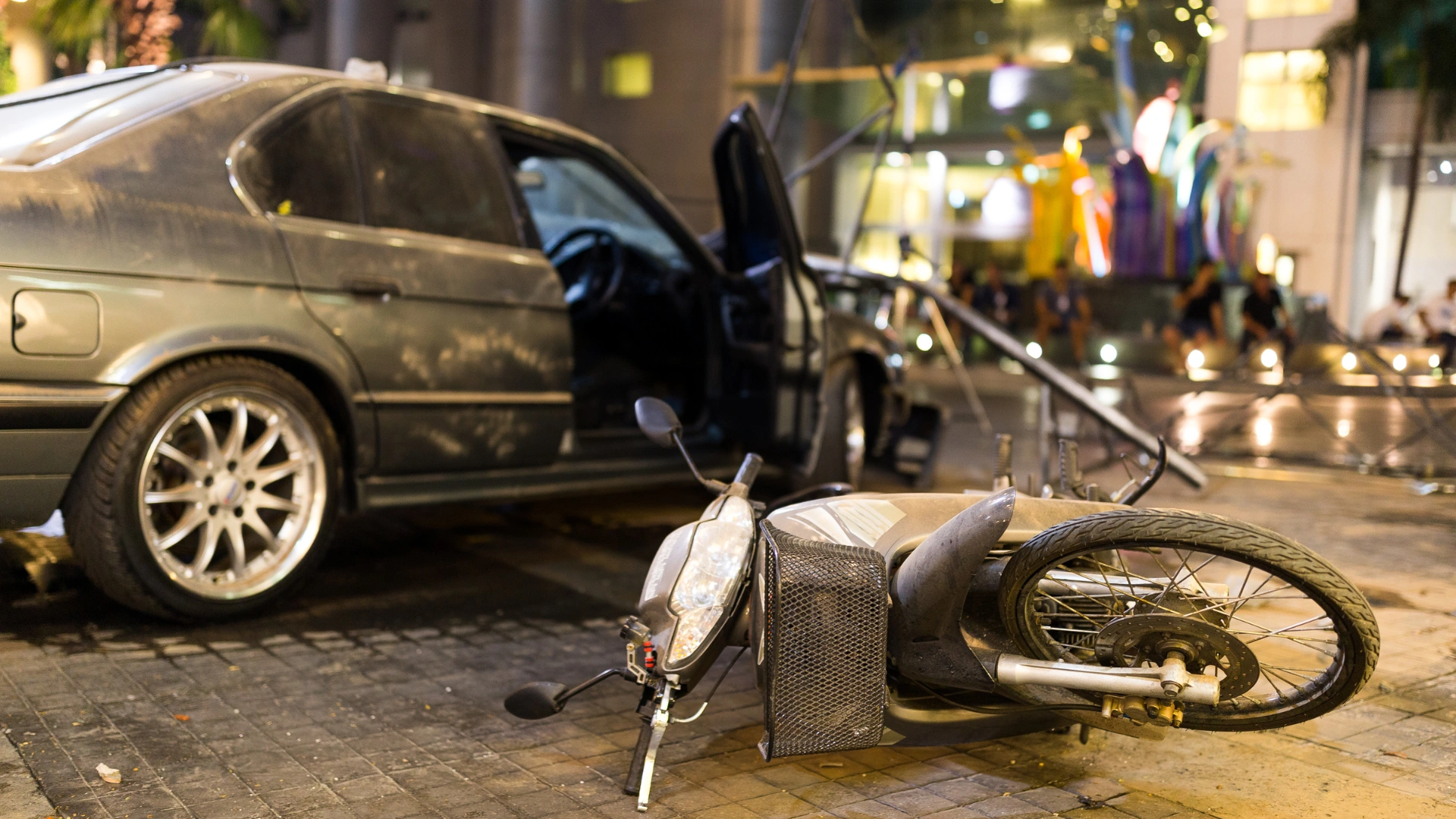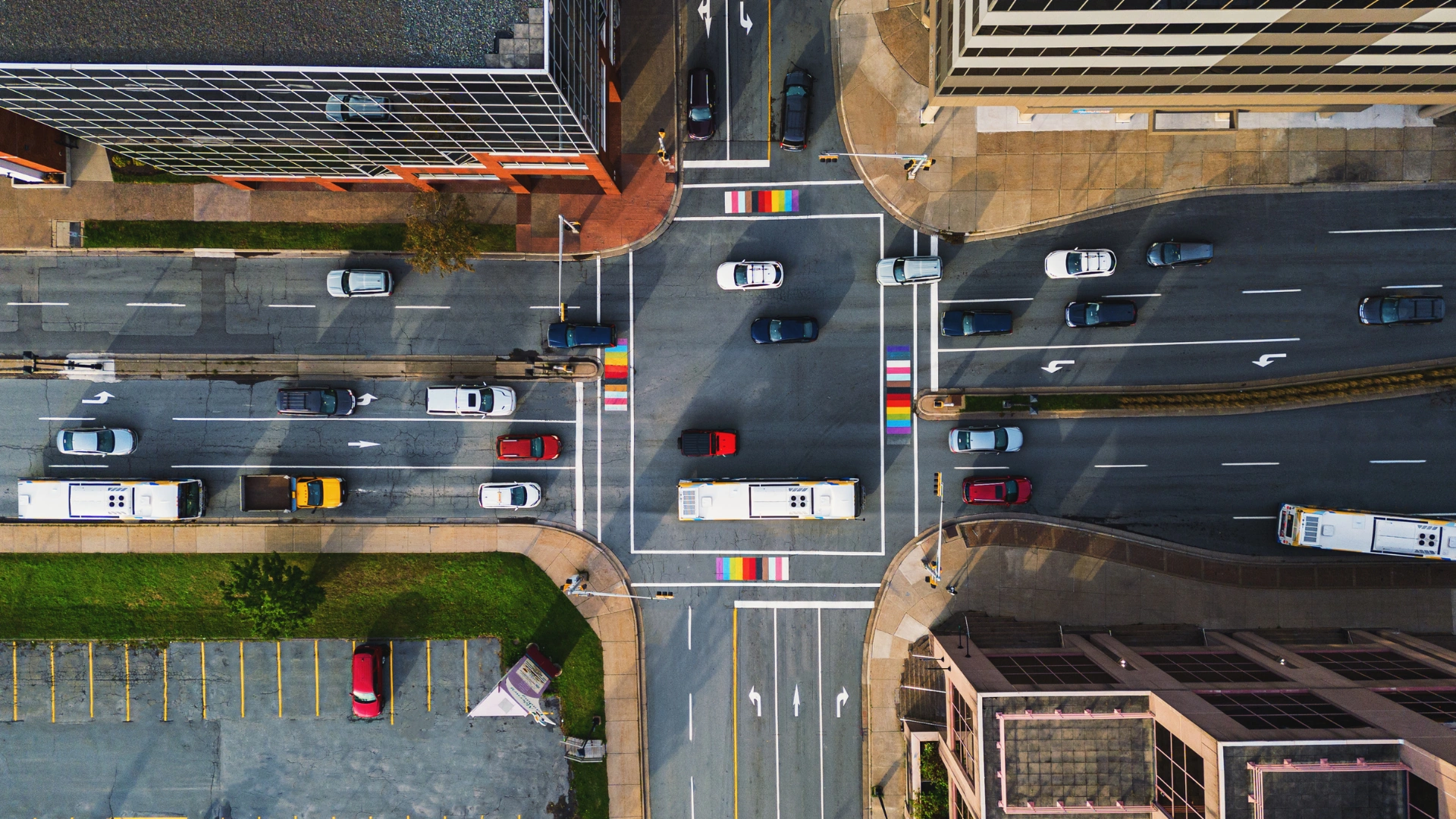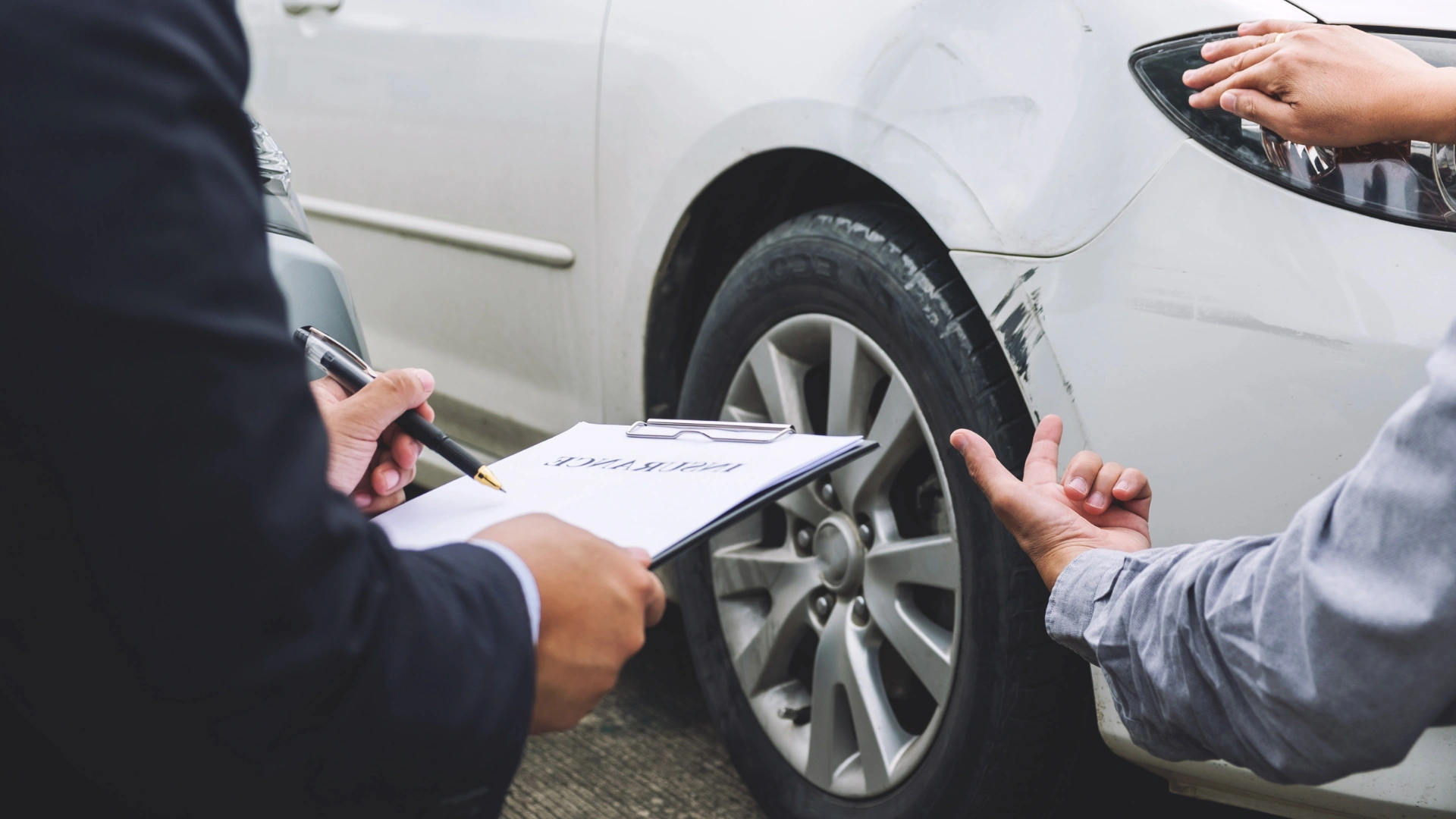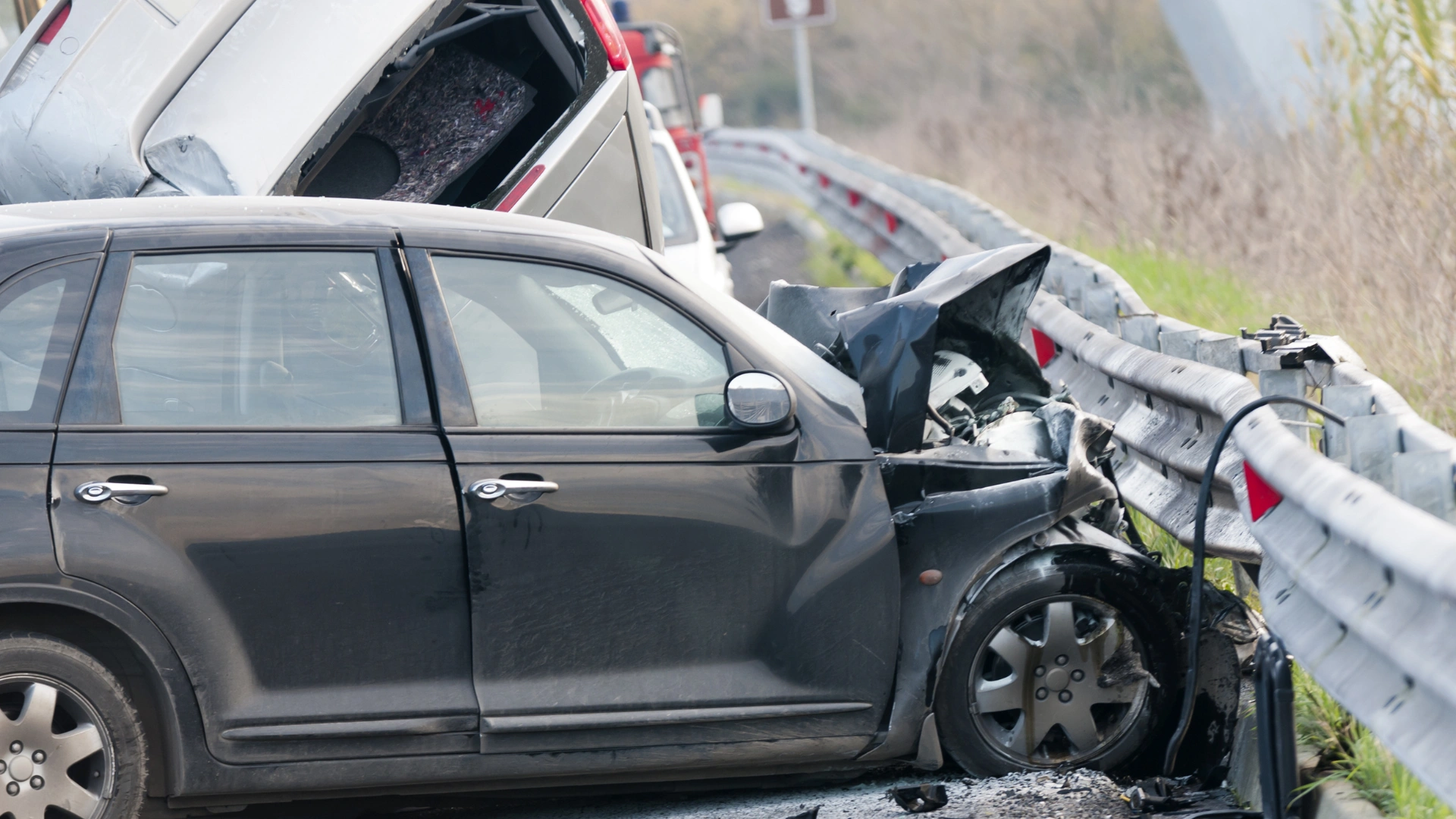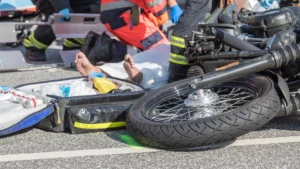
You know the feeling. Early sun over the Front Range, cool air along Speer, engine steady as you roll past Downtown, Capitol Hill, or out toward Federal.
Then traffic tightens. A driver scrolls a phone. Someone rushes a left turn at Colfax and Colorado. In a second, your calm ride turns into shattered plastic, torn gear, and pain you did not plan for.
This guide on Denver motorcycle crash causes and prevention tips is not here to lecture you about riding. You already respect your bike and the road. The real problem is often the people around you and the way Denver traffic works.
At Nares Law Group, we see what happens after the sirens fade. We talk with riders whose lives changed at one intersection or on one merge lane. Here, we break down how crashes really happen, what you can do to lower the risk, and what steps help if a driver still hits you.
You cannot control every choice another driver makes. You can stack the odds a little more in your favor.
Why Denver is Tough on Riders
Denver is not an easy place to ride. You have:
- Tight city grids with lights every block on Colfax and Broadway
- Fast lane changes on I 25, I 70, and C 470
- Sudden weather shifts, from clear skies to rain or hail
- Heavy event traffic near Ball Arena, Empower Field, and Coors Field
- Tourists in rentals who do not know where they are going
All of this matters for riders. Cars stop short to catch a turn. Trucks swing wide. Drivers stare at navigation apps instead of mirrors. The more you understand the common causes motorcycle accident riders face, the better you can read the traffic around you.
How Denver Motorcycle Crash Causes and Prevention Tips Keep you Ahead of Danger
Knowledge alone does not stop a crash, but it changes how you scan the road. That is where motorcycle crash causes and prevention tips can actually help in real life.
When we talk about motorcycle crash causes and prevention tips, we are really talking about two things:
- What patterns keep putting riders in bad positions
- What small habits give you an extra second or two to react
You already know the basics. Wear real gear. Stay alert. Ride sober. We are going a bit deeper here and tying it to the way Denver streets and highways behave each day.
The Most Common Causes Motorcycle Accident Denver Riders See
Certain crash patterns show up again and again in local files. They are not random. They follow the way traffic flows in this city.
Here are some of the biggest ones:
Left turns across your lane
Drivers at busy intersections misjudge your speed or simply do not look for bikes. This shows up a lot at:
- Colfax and Colorado
- Federal and Evans
- Speer and Auraria
Sudden lane changes on the highway
On I 25, I 70, and 6th Avenue, drivers cut across lanes to make exits or pass slow traffic. They often:
- Fail to shoulder check
- Rely only on mirrors
- Underestimate how fast a motorcycle is closing the gap
Following too closely in city traffic
Stop and go downtown traffic is bad for riders. A small tap for a car can throw you off the bike. Tailgating is common:
- Near Cherry Creek shopping areas
- Around Union Station and LoDo
- On surface streets around schools and offices
Distracted driving
Phones, podcasts, maps, and screens keep stealing attention. Even at low speeds, a second of distraction can be enough for a driver to drift or miss a stop sign.
Speed and poor road conditions
Potholes, gravel near construction, slick paint lines, and sudden rain combine with speed to send riders off balance, especially in curves and ramps.
Knowing these patterns does not remove the danger, but it helps you predict where trouble is most likely. Understanding Denver motorcycle crash causes and prevention tips at this level gives you a mental map of risk that runs in the background while you ride.
Practical Safety Tips that Actually Fit Denver Riding
You cannot wrap the city in bubble wrap. You can adjust how you ride through it. These safety tips are simple but powerful when you build them into your routine.
Own your lane position
- In town, stay where drivers in front of you can see you in their mirrors.
- At lights, choose a spot that gives you an escape route if someone comes in too hot from behind.
- On multi lane roads, avoid riding in blind spots next to large trucks and SUVs.
Read intersections early
- Watch cross traffic two or three car lengths before you arrive.
- If a driver creeps into the intersection, assume they might turn.
- Ease off the throttle a bit when lights turn stale green and you are still a ways out.
Treat parked cars as moving threats
- Expect doors to open or cars to pull out without a signal in neighborhoods like Capitol Hill or Baker.
- Scan for heads in mirrors or movement in the driver seat.
Respect weather and road paint
- Storms can dump fast along the Front Range. Slow down when clouds move in.
- Avoid heavy braking on crosswalk paint, lane markings, and metal plates.
Make your intentions clear
- Use signals early.
- Tap your brake lever to flash your light before slowing.
- Do not weave in ways that make it hard for drivers to predict your line.
These are not meant to change who you are as a rider. They are small tweaks that respond to how Denver traffic really looks at street level.
Night Rides, Weekends, and Event Traffic
Risk is not the same at all times of day. Some patterns are tied to the clock and the calendar.
- Late nights and closing time
Impaired driving is more common around bar closing hours, especially near LoDo and South Broadway. Extra space and slower speeds help.
- Weekend rides into the foothills
Weekend traffic toward Golden, Morrison, and Evergreen brings tourists, cyclists, and drivers who brake suddenly for views. Expect random stops.
- Game and concert days
Before and after events at Ball Arena, Empower Field, and Coors Field, you will see sudden lane changes, last minute exits, and lots of rental cars. Give yourself more distance and patience.
Being aware of these patterns lets you treat certain times and areas with extra care, without giving up the joy of riding.
What to Do Right After a Crash
Even if you do everything right, another driver can still cause a wreck. What you do in the first minutes and hours can protect both your health and any future claim.
If you are able:
- Get to a safer spot away from flowing traffic.
- Call 911 and ask for both police and medical help.
- Take photos of the scene, vehicles, and your injuries if you can.
- Get names and numbers of witnesses and note nearby businesses with cameras.
- Avoid arguing with the other driver or guessing about speed or fault.
As soon as you can, see a doctor, urgent care, or ER. Tell them every symptom, not just what hurts most. Many injuries in motorcycle crashes show more fully after the shock wears off.
How a Legal Team Fits Into your Safety Plan
No one plans their ride thinking, “I will call a lawyer later.” Still, understanding your legal options is part of the bigger safety picture. If a crash happens, you want to know you can get medical care paid, keep a roof over your head, and support your family.
A focused legal team can:
- Take over communication with insurance companies
- Help collect photos, video, and witness statements
- Organize medical records and bills
- Explain what kinds of losses can be covered under Colorado law
- Push back when an adjuster tries to blame you because you ride
For many riders, this support is as much about stress relief as it is about money. It lets you focus on medical appointments and daily life instead of long phone calls and confusing forms.
How Denver Motorcycle Crash Causes and Prevention Tips Connect to your Rights
The phrase can sound like just another search term, but it sits at the edge between safety and law. It touches:
- How a crash happened
- How avoidable it was for the other driver
- How your choices before and during the ride will be judged
When we talk through Denver motorcycle crash causes and prevention tips with clients, we often find proof hidden in the details. Maybe you had your headlight on high beam. Maybe you were in a reasonable lane position, but the driver still turned. Maybe weather did play a role, but the driver still had time to see you and slow down.
Those facts shape how fault is assigned. Fault shapes what you can recover. The more clearly you can describe your habits on the bike and your choices in those few seconds, the stronger your position becomes.
Why Clear Records Matter After a Motorcycle Crash
Even if you never set foot in a courtroom, your case lives on paper and in digital files.
Strong records can include:
- ER and clinic records that link injuries to the crash
- Therapy notes that show progress and setbacks
- Photos of bruises, cuts, and scars over time
- Pay stubs and employer letters that show lost hours or job changes
- A simple daily journal of pain levels, sleep, and activity limits
You do not have to write essays. Short, honest notes are enough. When we review a case, these records often explain why a person moved from full time to part time, stopped certain hobbies, or struggled with mood and sleep. They tell the human story behind the medical terms.
How Nares Law Group Supports Riders and Families
At Nares Law Group, we meet riders after very hard days. Some arrive with visible injuries. Others look fine from the outside but describe headaches, fogginess, and pain that keeps them up at night.
Here is what you can expect from us:
- A calm, private place to tell your story
- Straight answers about what the law can and cannot do
- Respect for the choice to ride and for the skill it takes
- A plan built around your medical care, work life, and family needs
We are based in Colorado and work with clients throughout the Denver area. Meetings can happen near downtown with easy RTD access and nearby parking, or by secure video if travel is hard.
When you should Reach Out
If traffic has already proven how unforgiving it can be, you do not have to handle everything alone. Maybe you are unsure whether you even have a case. Maybe an adjuster has already called with questions or a quick offer. Those are good times to pause and get advice.
You do not need all the answers before you call. You just need your questions.
Talk with Nares Law Group About your Next Steps
If a driver in Denver has cut you off, turned into you, or rear ended you, and you are now dealing with pain, bills, and stress, it is okay to ask for help.
At Nares Law Group, a short free conversation can bring order to a chaotic situation. We can talk through your medical care, work changes, and the options you have under Colorado law. If a careless driver has already ignored everything in Denver motorcycle crash causes and prevention tips, you still have rights and choices.
You decide how involved you want us to be. Our job is to give you clear information and a plan that respects your time, your recovery, and your life off the bike.

